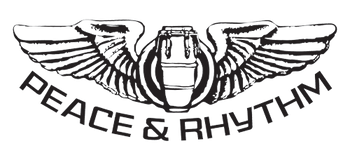
You know those people who's music everyone knows but they've never heard of it's creator? Meet Raymond Scott, one of the wackiest composers out there. He was a dada-inspired jazz bandleader, an instrument-builder, a pioneer in electronics and the composer of the Looney Tunes (arranged by Carl Stalling) and Ren & Stimpy music.
Born Harry Warnow in Brooklyn to a family of Russian Jews, he started working for his brother in the CBS Radio house band as a pianist, changing his name to "Raymond Scott" (how to avoid claims of nepotism) before forming his spin-off Quintette in 1936. (It was a six-piece band but he said that calling it a Sextet would "get your mind off music"). A couple of the original members were Bunny Berigan and drummer Johnny Williams, who was the father of Star Wars composer John Williams.
Scott's type of swing jazz largely dispensed with live improvisation, preferring the musicians to play everything exactly as written. (Which is interesting because some of this sounds like proto-bebop.) This led to hatred from jazz snobs, although his songs were popular. In '39 he expanded the group to a big band and he created the first racially integrated band in the radio industry. Ben Webster, Cozy Cole and others were in this group.
In '41 he led an entertaining "silent music" orchestra of thirteen barely-playing musicians. He was a masterful sound engineer and was employing an early version of multi-tracking around the same time as Les Paul. He composed for Broadway shows, had a classical concert at Carnegie Hall in '50 and ran his two record labels.
In '46 he started one of the earliest studios devoted to electronic music/musique concréte, Manhattan Research, a company that built electronic instruments like early rhythm machines, synthesizers, early MIDI and ring modulators. In fact, he and Bob Moog collaborated. He also designed musical versions of many common household items. This was funded by his day jobs: he wrote commercial jingles, led an orchestra on NBC television from '50-57.
In the late '50s he worked for Everest and produced records for Gloria Lynne and his own Secret 7 group (with Kenny Burrell, Milt Hinton, Elvin Jones and others). He made records with his wife, singer Dorothy Collins. His 1964 minimalist project Soothing Sounds For Baby was intended as sleep-aid music for infants. In the mid-'60s he composed electronic sounds for Jim Henson. He worked for Motown in the '70s.
The genius influenced Carl Stalling, Robert Moog, John Zorn, Hal Willner, Roger Miller (Mission of Burma), Don Byron and "Powerhouse" is a perennial cartoon classic (and has been covered by Rush). "The Toy Trumpet" was a huge hit for Al Hirt and Scott's music has been sampled by several hip-hop producers.
